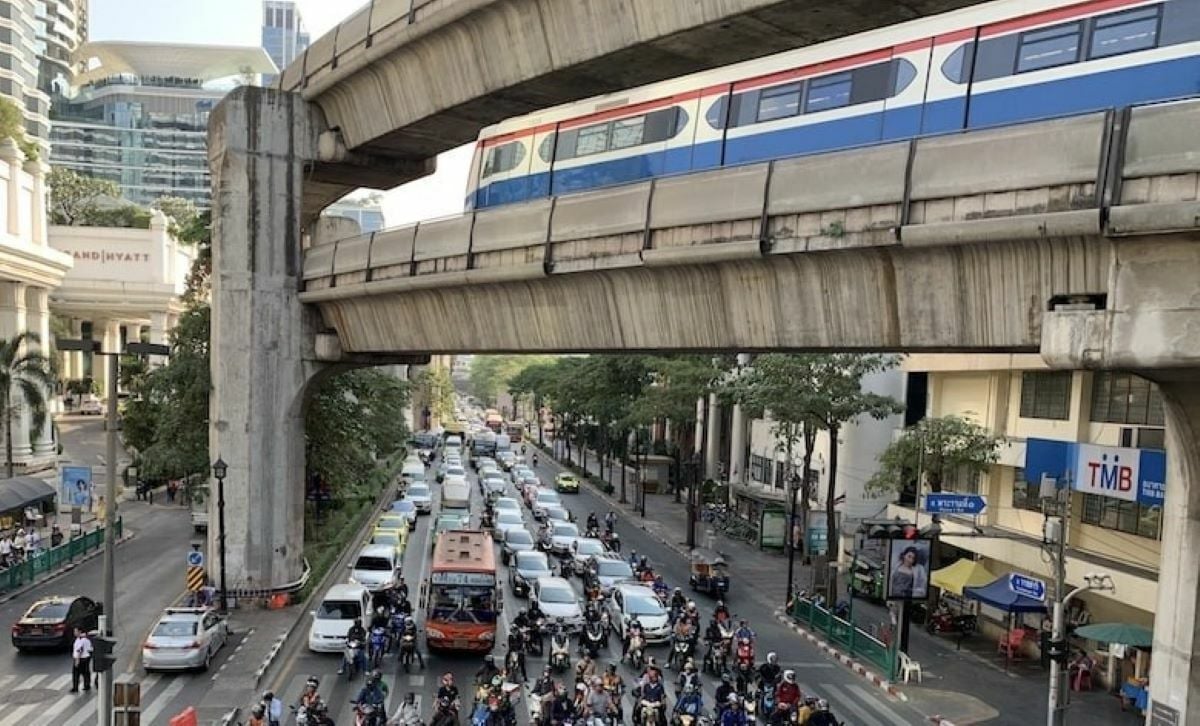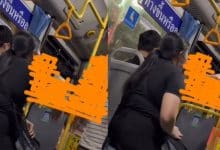Thailand backs 20-baht cap on mass transit fares

Thailand Consumer Council (TCC) backs the Transport Ministry‘s initiative to cap mass transit electric train fares at 20 baht per trip, according to Secretary-General Saree Ongsomwang, who also advocates for a fair budget allocation for public bus services across all provinces.
Saree stated that the 20-baht fare cap was one of Pheu Thai’s campaign promises ahead of last year’s election. Former Prime Minister Thaksin Shinawatra highlighted the issue during his Vision for Thailand 2024 speech, suggesting that the cap could be achieved if the government buys back private electric train projects.
“The 20 baht flat fare for the whole line is possible when every line is owned by the government,
“Setting the flat rate at 20 baht can definitely be done. If successful, it will be an unprecedented reform of the mass transit system.”
Saree emphasised how the government could then set ticket prices and introduce congestion charges for car users, using the revenue to subsidise public transport.
This reform is expected to gain widespread support, similar to the 30-baht universal healthcare policy. Saree believes affordability and convenience will encourage more people to use the mass transit system, reducing urban pollution as private vehicle users switch to electric rail services.
Varying transport fees
Due to concessions granted to private businesses for some electric train lines, the government currently cannot fully implement the flat rate fare. Commuters face varying fees, with round-trip fares to workplaces ranging from 100 to 200 baht. For commuters, paying for their cars in instalments is often seen as a more cost-effective solution.
TCC research indicates that if the admission fee collected by electric train operators is excluded, the average cost per journey would be only 16 baht.
She proposed reallocating funds from expressway projects to purchase electric train concessions from private firms. The government could wait until the end of concession terms, such as the BTS Green Line contract expiring in 2029. For newer lines like the Yellow and Pink Lines, the government should negotiate with companies to buy back concessions.
Saree stressed that the concession fee should be fair to the private sector. She also suggested using funds from vehicle registration renewal fees collected by the Land Transport Department, which could generate roughly 50 billion baht annually. This money could be used to buy back electric train concessions and procure public buses for every province.
“Bus purchases typically cost 6 million baht… The ministry will need to spend almost 33 billion baht on 5,390 buses if it can buy 70 buses for each of the 77 provinces.”
Using funds in this way could be seen as more beneficial to the masses compared to building expressways. For instance, the Expressway Authority of Thailand’s double-decker highway project is expected to cost 34 billion baht.
Extend to rural areas
Saree urged the government to focus on public transport demand in rural areas and consider monorail projects for big cities like the capital. A more extensive secondary transport network with more buses and boats is needed to connect commuters to electric rail services, reported Bangkok Post.
“Every government has an obligation to offer the most efficient, affordable, and convenient mass transit system possible.”
According to Saree, If achieved, the government could also collect congestion fees from private automobile drivers entering inner city areas, reducing traffic congestion. Saree’s proposal was made in consideration of personal budgeting, and helping commuters limit their daily travel expenses.
“All of this is done in accordance with the principle that people’s daily travel expenses must not exceed 10% of the minimum wage.”
Latest Thailand News
Follow The Thaiger on Google News:


























